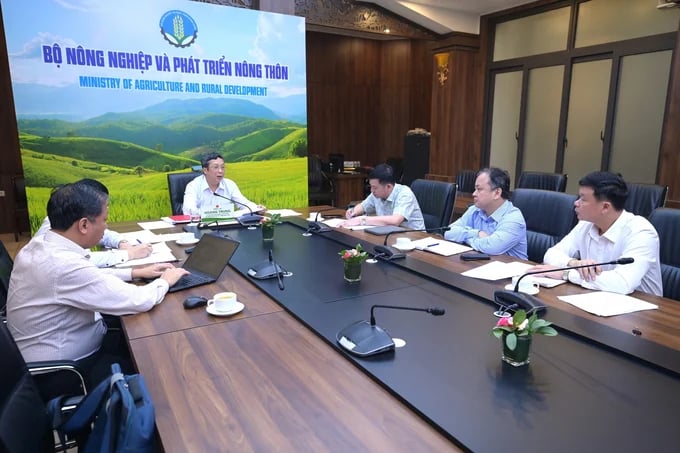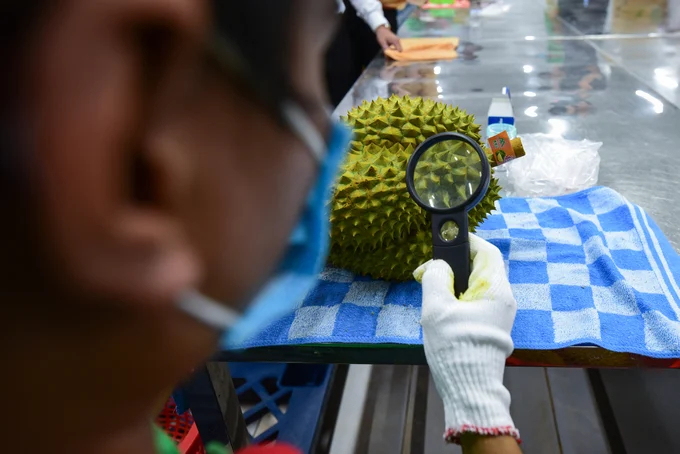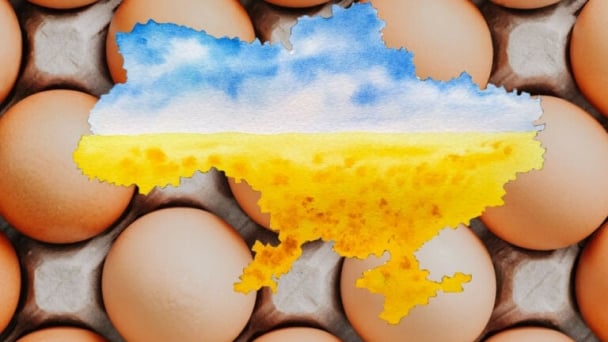May 20, 2025 | 20:53 GMT +7
May 20, 2025 | 20:53 GMT +7
Hotline: 0913.378.918
May 20, 2025 | 20:53 GMT +7
Hotline: 0913.378.918

Deputy Minister Hoang Trung worked with the Department of Plant Protection on the morning of April 10. Photo: Tung Dinh.
On the morning of April 10, Deputy Minister Hoang Trung worked with the Department of Plant Protection on opening agricultural export markets. As a guiding principle, the Deputy Minister urged the Department to swiftly conclude negotiations with markets that have submitted technical barrier dossiers, prioritizing feasibility and practicality in implementation.
"We must negotiate with a mindset of mutual benefit, where products are exchanged reciprocally as we have done in the past. Markets with potential for opening but limited prospects require careful consideration and evaluation," directed the leadership of the Ministry of Agriculture and Rural Development.
Deputy Minister Hoang Trung stressed the importance of closely monitoring residue levels and ensuring the quality of agricultural products to guarantee sustainable exports. This involves oversight of growing area codes, packaging facilities, etc. Any violations could negatively impact exports, diminishing competitiveness.
Highlighting the significance of the Chinese market, Deputy Minister Hoang Trung focused attention on China, as it is a crucial market for Vietnam's agricultural exports, particularly crop products.
Consequently, negotiations for two key items – frozen durian and coconut – need to be expedited to conclude and sign the protocol early. These products hold significant potential for Vietnam. Opening the Chinese market for these items would alleviate export bottlenecks. Additionally, the Deputy Minister instructed the Department of Plant Protection to collaborate with the Ministry of Health to address Chinese inquiries regarding medicinal products promptly.
Deputy Minister Hoang Trung emphasized the need for standardization for agricultural products already covered by export protocols, as proposed by the Chinese side. "Currently, bananas and watermelons have been standardized, but jackfruit, lychee, rambutan, mango, and dragon fruit require prompt review. Our objective is to facilitate rather than hinder, ensuring a scientific basis, feasibility, and compliance with international standards," added Mr. Hoang Trung.
Furthermore, the Deputy Minister recommended implementing stringent measures to monitor residue levels and maintain the quality of agricultural products, ensuring compliance with import regulations to prevent any violations that could impact exports.
"While it may be necessary to conduct inspections on key export products before shipment, careful evaluation is needed as this could potentially increase costs for businesses," Deputy Minister Hoang Trung suggested. He also proposed a plan for the Department of Plant Protection to assist localities in developing and implementing pesticide residue monitoring programs for major fruit production areas designated for export.

Strict monitoring of residues and quality of agricultural products is a measure to ensure sustainable export. Photo: Tung Dinh.
In response to the Deputy Minister's guidance, Director of the Department of Plant Protection, Huynh Tan Dat, expressed his commitment to exploring the development of comprehensive guidelines for localities. Additionally, he suggested providing support to businesses in implementing QR codes on their products, enabling them to establish brand identity, reputation, and accountability for product quality.
Regarding other markets, the Deputy Minister emphasized the need to prioritize negotiations for passion fruit exports to the US market. He also highlighted the importance of addressing irradiation treatment concerns, suggesting direct engagement to formulate appropriate treatment measures if required.
Furthermore, negotiations are underway with South Korea to facilitate the export of Vietnamese grapefruit and cantaloupes. Grapefruit exports are also being discussed with Japan, with the Deputy Minister proposing consideration of hot steam treatment as an alternative, taking into account its potential impact on fruit skin, quality, and shelf life.
Additionally, the Department of Plant Protection was tasked with collaborating with Japanese partners to explore the transfer of treatment supervision measures that could be implemented in Vietnam, aiming to reduce business costs.
In conclusion, Deputy Minister Hoang Trung's emphasis on stringent monitoring of residue levels and quality control measures underscores the commitment to ensuring sustainable agricultural exports. Through proactive negotiations and strategic initiatives, such as the development of monitoring programs and exploration of innovative treatment methods, Vietnam aims to enhance its competitiveness in global markets while upholding standards of product integrity and safety. By fostering collaboration between government agencies, localities, and businesses, Vietnam is poised to further expand its agricultural export portfolio and capitalize on emerging market opportunities, ultimately contributing to the growth and prosperity of its agricultural sector.
Translated by Quynh Chi

(VAN) Oliyar, a prominent Ukrainian oil and fat manufacturer, has revealed plans to build a farm for 2.3 million laying hens in the Lviv region. The additional production quantities promise to change the competitive landscape of the egg market of the Eastern Europe region.

(VAN) On May 15, Ministry of Agriculture and Environment of Vietnam hosted the 'Connecting Vietnam - Germany agricultural, forestry and fishery trade' seminar in Berlin, Germany.

(VAN) In the face of counterfeit and imitation products, Khanh Hoa Salanganes Nest Company hopes for the prompt completion of the legal framework, strict enforcement against violations, and protection of the bird’s nest brand.

(VAN) Japan's efforts to lower the price of rice through the release of its stockpile may finally be making some progress, albeit at a snail's pace.

(VAN) U.S. tariffs are not only a 'shock', but also an opportunity for Vietnamese businesses to renew their mindset toward comprehensive development.

(VAN) As Bac Giang lychee enters the harvest season, Minister Do Duc Duy expects that the fruit will contribute greatly to agricultural exports due to standardized production and deep processing.

(VAN) Consumers have shown a preference for free-range eggs, but those farming systems are more vulnerable to biosecurity risks like bird flu.